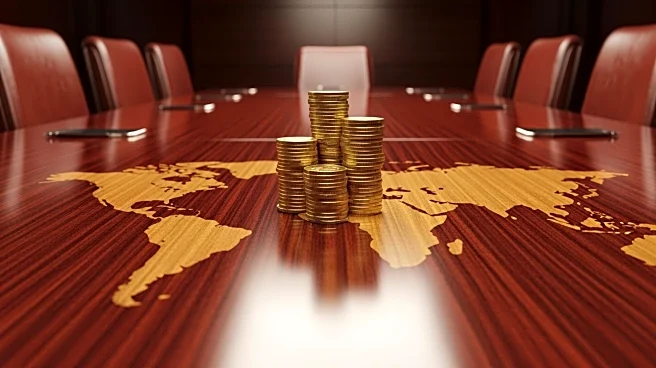What's Happening?
President Trump is set to embark on a trip to Asia, where he will meet with leaders from Malaysia, Japan, South Korea, and China. The primary focus of this visit is to promote a significant financial investment
of at least $900 billion into U.S. factories, a natural gas pipeline, and other projects. These commitments were initially made by Japan and South Korea in August as part of an effort to persuade Trump to reduce planned tariff rates from 25% to 15%. However, as Trump prepares to depart, these pledges remain unresolved, with Japan and South Korea seeking conditions that benefit their own economies. Japan has pledged $550 billion, while South Korea has committed $350 billion, contingent upon a swap line for U.S. dollars funded through loan guarantees.
Why It's Important?
This development is significant as it highlights the ongoing trade negotiations and economic diplomacy between the U.S. and key Asian nations. The potential $900 billion investment could have substantial implications for the U.S. economy, particularly in manufacturing and energy sectors. However, the conditions attached to these investments by Japan and South Korea indicate a complex negotiation process that could impact the final outcome. The success of these talks could bolster U.S. economic strength and influence in Asia, while failure to secure these investments could strain relations and affect global trade dynamics.
What's Next?
As President Trump prepares for his meetings in Asia, the focus will be on whether he can secure these investments under terms favorable to the U.S. economy. The outcome of these discussions could influence future trade policies and economic relations with these countries. Additionally, Trump's meeting with Chinese leader Xi Jinping will be closely watched for any developments in U.S.-China trade relations, which have been a focal point of his administration's foreign policy.










